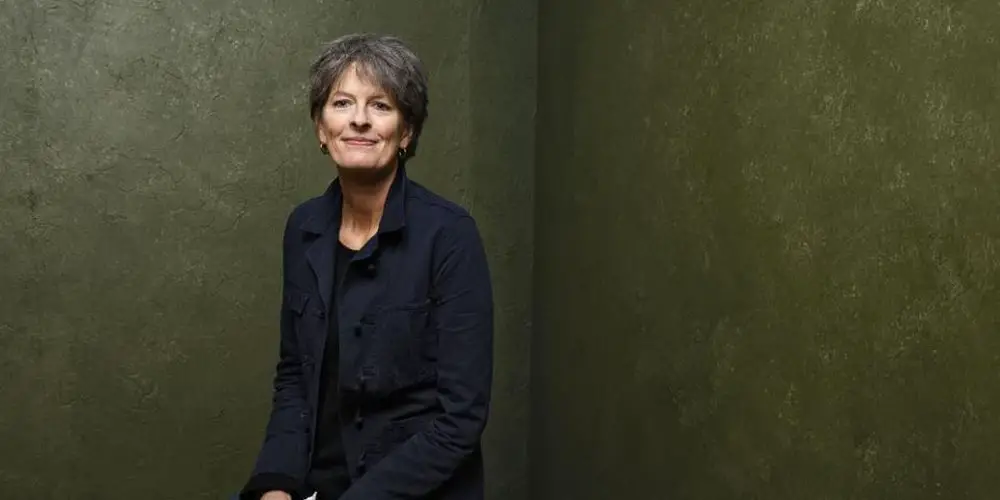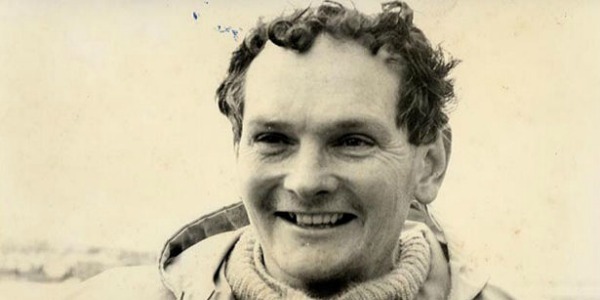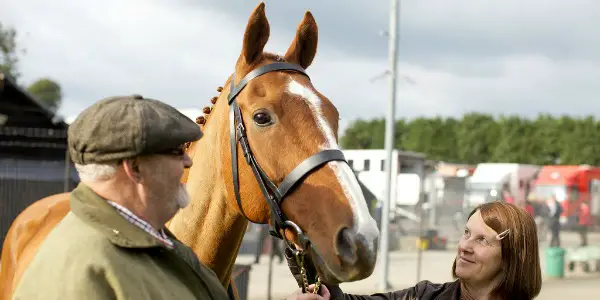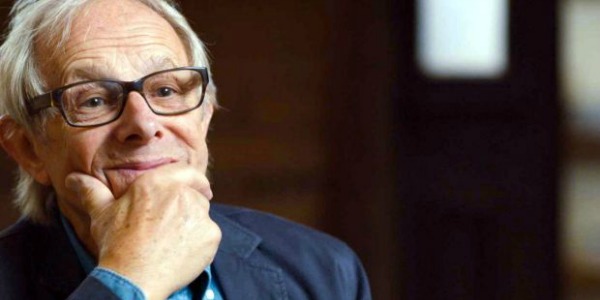The Beginner’s Guide: Louise Osmond, Director

I love film, more than people probably, and I will…
You won’t find out much about Louise Osmond if you look online. She is an Oxford history graduate who joined ITN as a news journalism trainee, and that’s all I or probably any other writer could know about her. But the personal details are irrelevant in the face of such a sturdy, and increasingly successful career as a documentary maker. Because of her work on the UK’s Channel 4 there are Brits amongst you who may be familiar with her work on Cutting Edge, her feature The Beckoning Silence, or Richard III: The King in the Car Park. But I wouldn’t blame you if you weren’t.
To be honest, Louise Osmond is something of a mystery to me. A mystery because I really love her documentaries, but it was years before I even knew she was the person behind them all. It was a moment of serendipity but also deep suspicion that led me to finally realise Osmond as a fully formed documentary maker. An invitation by a friend to see a BAFTA screening of Dark Horse, a film made only a few doors away from my grandmother’s house, then some googling to find out who this mysterious stranger was (a stranger who no doubt had exploited my local area for her own ill gotten gains).
How wrong could I have been. Not only had I seen the majority of Osmond’s films but a few of them were favourites. After the screening of Dark Horse, a genuinely sympathetic and engaging film, she answered questions from the audience. She was enthusiastic, smart and charming. How could I have suspected her of anything else? And it is with all that in mind that I write this. In the hopes that you readers will learn what it took me years to realise.
Humble Beginnings
Louise Osmond started her career as a ITN news journalist in what was most likely the late 80’s/early 90’s, and it shows. A period of great uncertainty across the world but also in the UK at this time drove, but also resulted in, some of our finest journalism. Miners’ strikes, the HIV & AIDS epidemic, the Poll Tax riots, even the warnings on television and in our schools. Images attempting to dissuade drink driving and unsafe outdoor play were seriously quite traumatic for my generation.
All this amounted to one simple thing: proper journalism. It is that which underscores Osmond as a filmmaker. She is not here to simply entertain us, she isn’t interested in sensationalising, she is only interested in good stories told well. Each of her films to me echoes the kind of documentaries I came across as a child; solid storytelling with a strong backbone of research. Talking head interviews, filmed basically and without the dark background and dramatic lighting that pervades so many modern documentaries, dove tail into archive images and film. With, in some cases, dramatisations employed to accentuate the story.
It is unclear when exactly Osmond left television journalism, but she has never strayed too far. Her first television documentary, The Real Hughie Green (about the English TV presenter), aired in 2001. This was followed by a number of documentaries made for television, mainly historical stories: The Blitz: London’s Longest Night & London’s Firestorm, Looking For Victoria and The Search For The Northwest Passage. Most of these are lost to us viewers, although as they are held in TV archives they do occasionally pass by on repeats.
On The Big Screen
Osmond directed her first feature length documentary in 2006, alongside Jerry Rothwell. Deep Water is the story of sailor Donald Crowhurst, and his fateful quest to complete the 1968 Sunday Times Golden Globe Yacht Race. Deep Water is a rich and emotive film, bolstered by the fact that much of the story is told using original film of Crowhurst, along with contributions from his family. It is rich with story and evidence of his plight, which no doubt the production took a good amount of time and persistence in compiling.

However, what makes Deep Water special is the understanding that Louise Osmond cultivates in the audience, that we can never truly know who Donald Crowhurst was. Even with all the evidence and anecdotal information from his family and those who knew him, no one knows for certain why he did what he did. This can be disappointing as a viewer but the very fact that Osmond does not push for a reason or a conclusion, but merely lays the bones bare, is credit to her integrity as a journalist. It is to Osmond and not Rothwell that I credit this fact simply because it is similar in approach to her other films.
Osmond’s next feature documentary, made for Channel 4 in 2007, was founded on the success of Touching The Void. The Beckoning Silence is based on Joe Simpson’s book of the same name, in which he not only addresses his near death experience (covered in the former film) but looks at his childhood hero Toni Kurz. Kurz, along with three other mountaineers, attempted to scale the northface of the Eiger in 1936. The documentary follows Simpson as he climbs the face himself (which he has many attempted many times before), and considers his life as a mountaineer, his mortality, and what the future may hold for him. His story is told alongside Kurz’s, which is dramatised in sections.
The Beckoning Silence is complex. It is about mountaineering but it is also about the considerations of one’s own mortality. Simpson is cagey about his own decisions regarding his future as a mountaineer, but using Kurz as a tool is able to consider and vocalise his fears. Like Osmond’s other films, a definite conclusion is not reached. Which is as it should be, as Simpson doesn’t know himself what the future might hold.
The Beckoning Silence is less emotive than Osmond’s other features, and it really feels as though more could have been gleaned from the situation. However, the documentary’s production value is impressive. The very act of filming the dramatisations, and Simpson’s ability to talk the audience through Kurz’s story while dangling on the face of a mountain that has killed many men before, is admirable. In 2008 The Beckoning Silence won an International Emmy for Best Documentary.
A Racing Success
What makes Louise Osmond’s documentaries successful and is, indeed, improving them year on year is her dedication to research. She is credited with, roughly, a documentary a year. Even in the case of shorter TV work proper research takes time. After The Beckoning Silence she stayed in television, making episodes of the Channel 4 Cutting Edge documentary series from 2009 to 2010. Then came What The Green Movement Got Wrong in 2010, McQueen and I in 2011, Six Million Dollar Conman in 2012, True Stories: America’s Serial Killer in 2012, and finally my favourite of her filmography, the BAFTA nominated Richard III: The King In The Car Park in 2013.
However, despite her steady televisual output, it was the success of Dark Horse that really brought Osmond’s name out from the shadows. The film covers the story of a small Welsh syndicate who bought and raised a surprisingly successful race horse named Dream Alliance. Dream was, literally, raised on an allotment a few doors down from my grandmother’s house and his failures and successes were a huge part of the community for the years that he was racing.

It is Louise Osmond’s genuine warmth and admiration for the syndicate and the wider Cefn Fforest community that really makes this film. Even if, from a personal standpoint, I can pick some holes in it (for instance, it frequently uses panoramic shots of the valley below Cefn Fforest and the not the area itself), that doesn’t detract from what is a very well-made and inspiring film. Dark Horse won the World Cinema – Documentary Audience Award at the Sundance Film Festival, followed by the Best Documentary Award at the British Independent Film Awards, and rightly so.
Osmond’s most recent film was released this summer, the documentary Versus: The Life and Films of Ken Loach. The film looks at Ken Loach’s emergence from retirement after the reinstatement of the Tory government in 2015, but then broadens into a rich biography of Loach’s life and career. Going back and forth in time, and crossing from one area of Loach’s life to another, it is thick with emotion and information.
Loach, while known as a great filmmaker, has also always been known as left-wing, subversive and controversial. While many of us, and more commonly today, respect his politics and integrity, there was a time when the industry and the media weren’t so forgiving. Osmond looks at every aspect of Loach and his life, keenly observing his fierce integrity, his family life, and his working relationships. As always she does not draw conclusions, but why would you need one? Especially here, when the film Loach is making, I, Daniel Blake, went on to win the 2016 Palme D’Or, mere weeks before the release of Osmond’s film. Here the proof of the pudding, as they would say, is definitely in the eating.
Versus is about a complicated, fierce man and a well-mannered treasure of the British film industry, and this documentary is a great testament to a filmmaker the industry spent many years keeping at arm’s length. It is to Osmond’s credit that this film draws attention not only to Loach’s career but to the act of filmmaking and documentary making. Mediums which are contemporarily so often used just for entertainment or escapism but which in the hands of Loach or Osmond can be tools to inform and change.
The Historian Vs. The Journalist
A clear theme runs through Louise Osmond’s documentaries: she loves stories. On the whole these are about men, but not always. What Osmond likes are stories about people who have been challenged. Not necessarily ones who have won out, but those who have persevered. All her films, from The Beckoning Silence to Richard III: The King in the Car Park to Dark Horse, are about people who chose the road less travelled. That’s what I love about Osmond, she’s not looking for happy endings, for her the journey is the thing.

While Osmond seems curious about a particular kind of story, it is her ability (like Ken Loach) to see it from different points of view that make her documentaries rock solid. She is a historian, someone interested in stories and their observers. She is also a journalist, someone keen to portray all angles and not draw unnecessary conclusions. But then, she is a documentarian, a filmmaker who knows how to tell a story in an informative and entertaining way.
These facets all seem to run into each other seamlessly. They appear to be the elements that every great documentary maker should possess. But they don’t. People make documentaries based on what’s popular, people don’t do proper research, people get so caught up in a good story that they refuse to look at it from an angle that might betray their dramatic and/or happy ending. Osmond isn’t one of these people, she works hard and with great accuracy, much like the subjects of her documentaries.
Conclusion
Louise Osmond is a great documentarian, because she is a hard worker and a good storyteller. What is more, Louise Osmond is precious; she always seems to be one step ahead of us, getting to the stories just a little bit before everyone else. This is what good journalists and documentary makers do. Which begs the question, if Osmond is the one bringing us these stories, why aren’t we talking about her more?
We should be discussing the fact that Osmond brought us closer to the story of the unlikely Welsh race horse syndicate, the story of Donald Crowhurst, the conman Christian Gerhartsreiter. Instead people will forever refer to ‘that story about the race horse’, the biopic of Donald Crowhurst; The Mercy (starring Colin Firth and being released next year), and Steffi Kammerer’s My Friend Rockefeller, which is easily accessed on Netflix. And if any director is going to be discussed after the success of Versus, it will be Ken Loach.
Which is really as it should be. While she is a superb filmmaker, and a reputation gives one a certain power, I doubt Osmond would want to be known more than the stories she tells. However, it is still something I’d like to change. The Beckoning Silence, Deep Water, Dark Horse, and Versus are all available on DVD in the UK, with Dark Horse also available on Netflix. In the US you can watch The Beckoning Silence, Deep Water and Dark Horse on Amazon Prime Video. Now you can learn something it took me years to realise, that there’s a talented and successful documentary maker out there, and her name is Louise Osmond.
Had you heard of Louise Osmond and/or her documentaries?
Does content like this matter to you?
Become a Member and support film journalism. Unlock access to all of Film Inquiry`s great articles. Join a community of like-minded readers who are passionate about cinema - get access to our private members Network, give back to independent filmmakers, and more.
I love film, more than people probably, and I will watch pretty much anything. Seriously, anything! I have a postgraduate education in film & have spent an exceptionally long time trying to get inside the film industry. I'm a big believer in treating every film the same, and bringing something new to the film theory table, giving reasons for every argument made. You'll find that I'm an empathetic and fun sort of reviewer, at least, I like to think so. If I'm not watching films I'm doing exceptionally nerdy stuff, like watching documentaries about the history of medicine and collecting photos of old post boxes.













